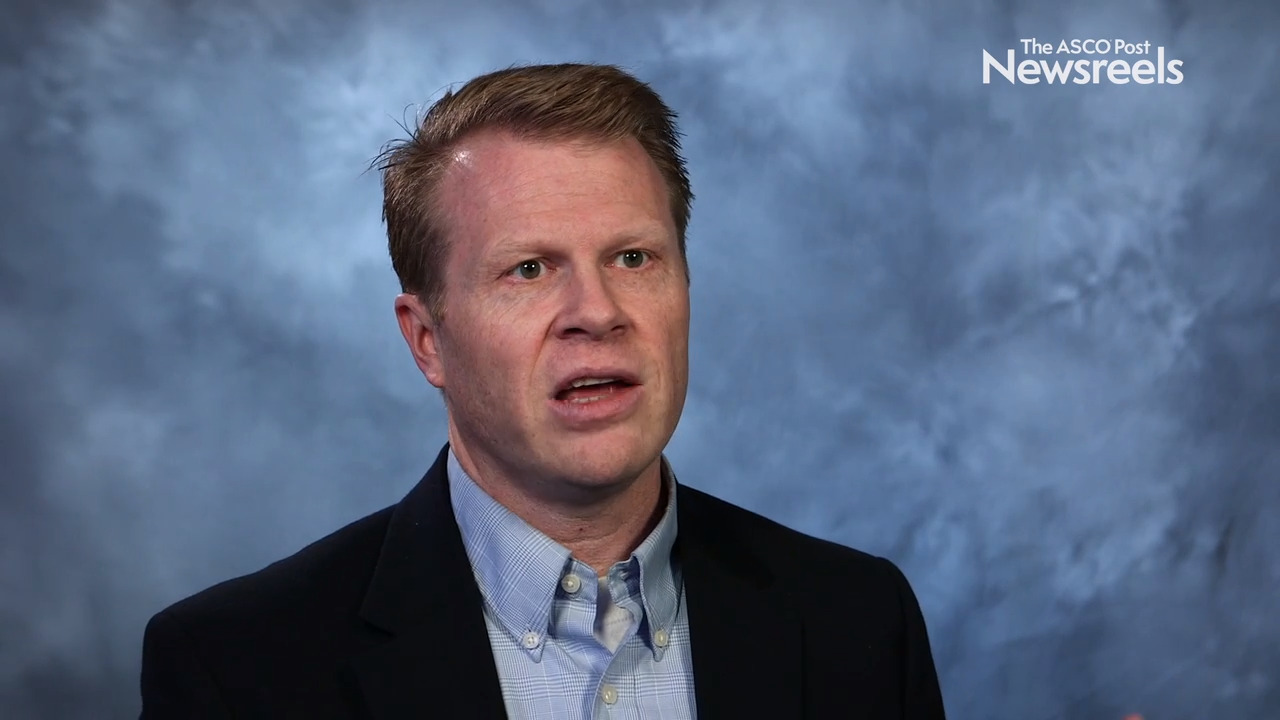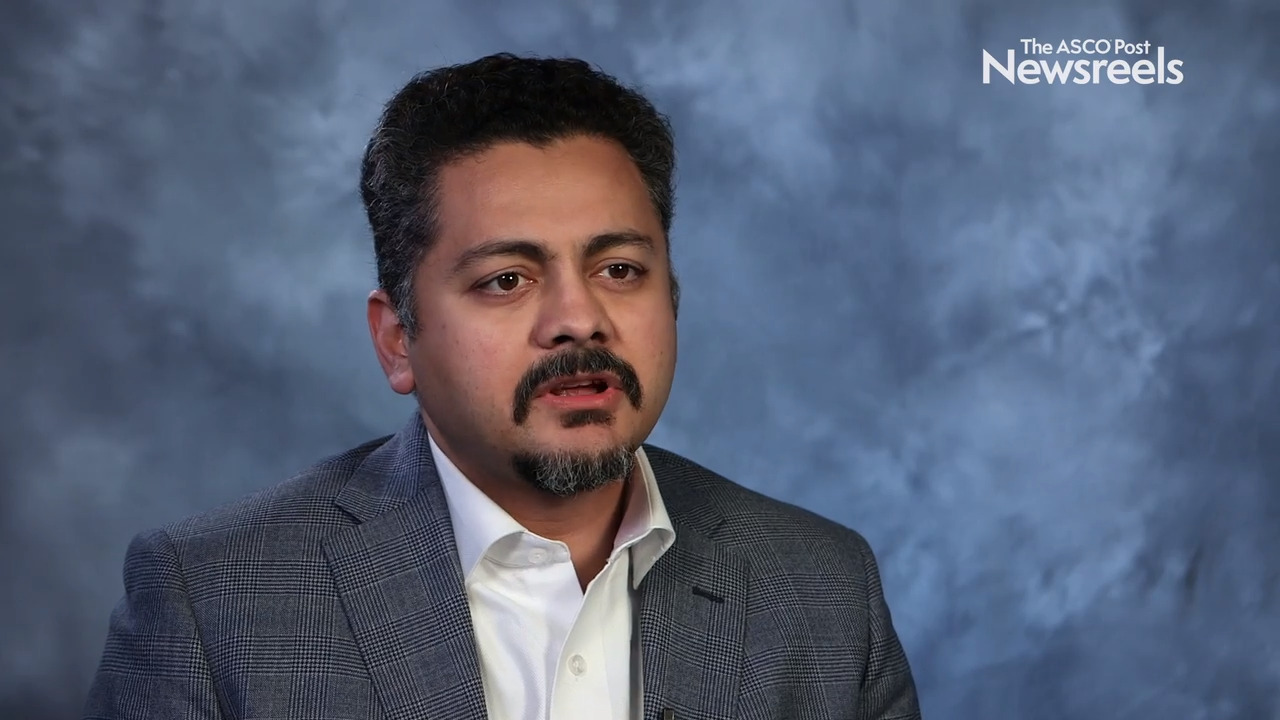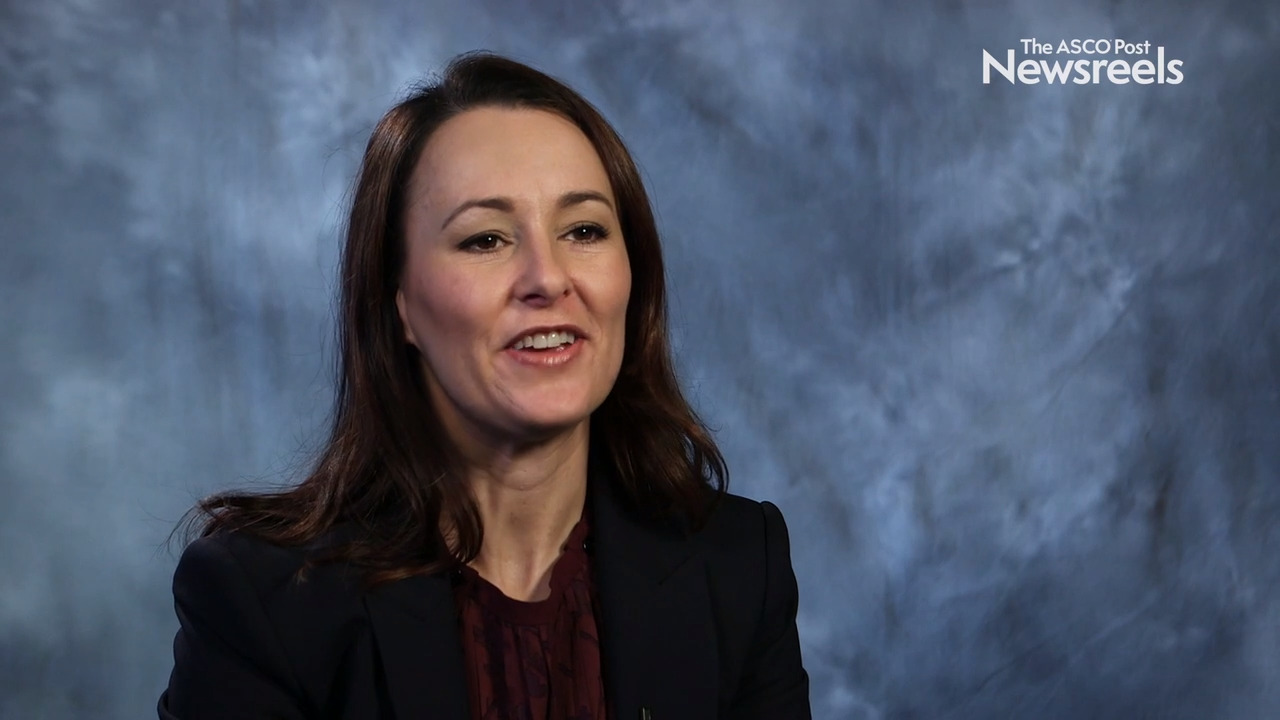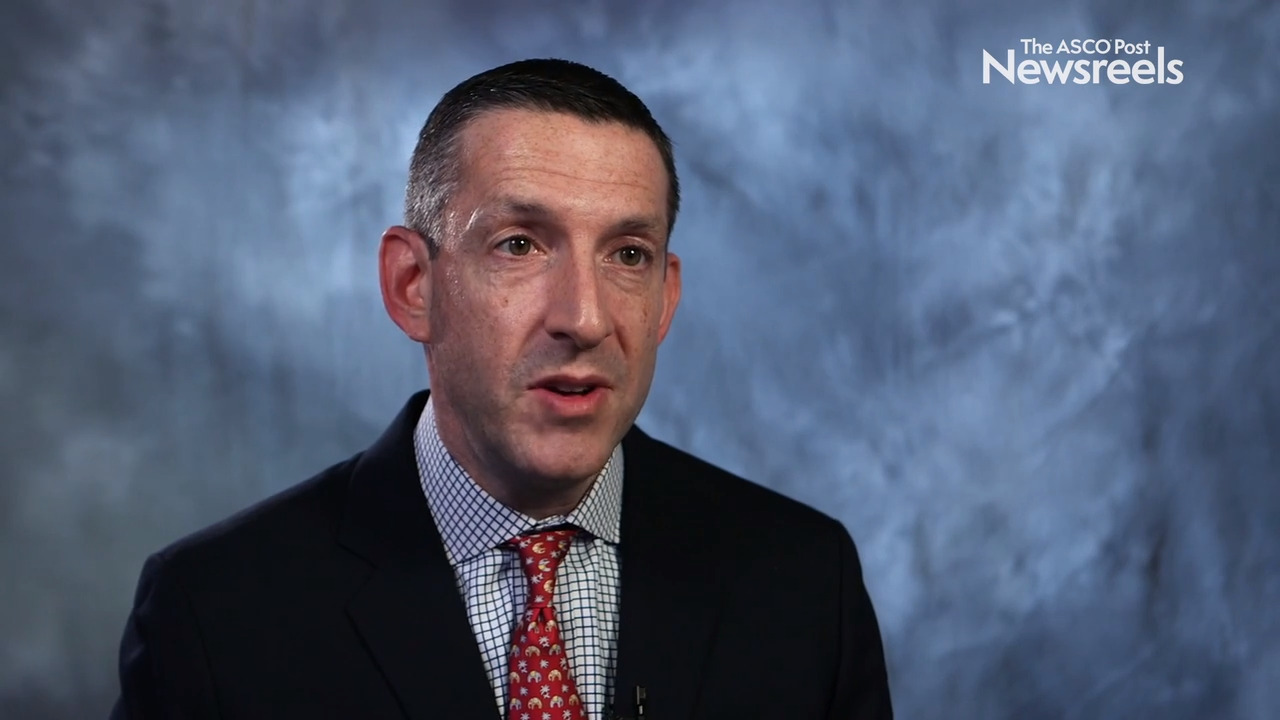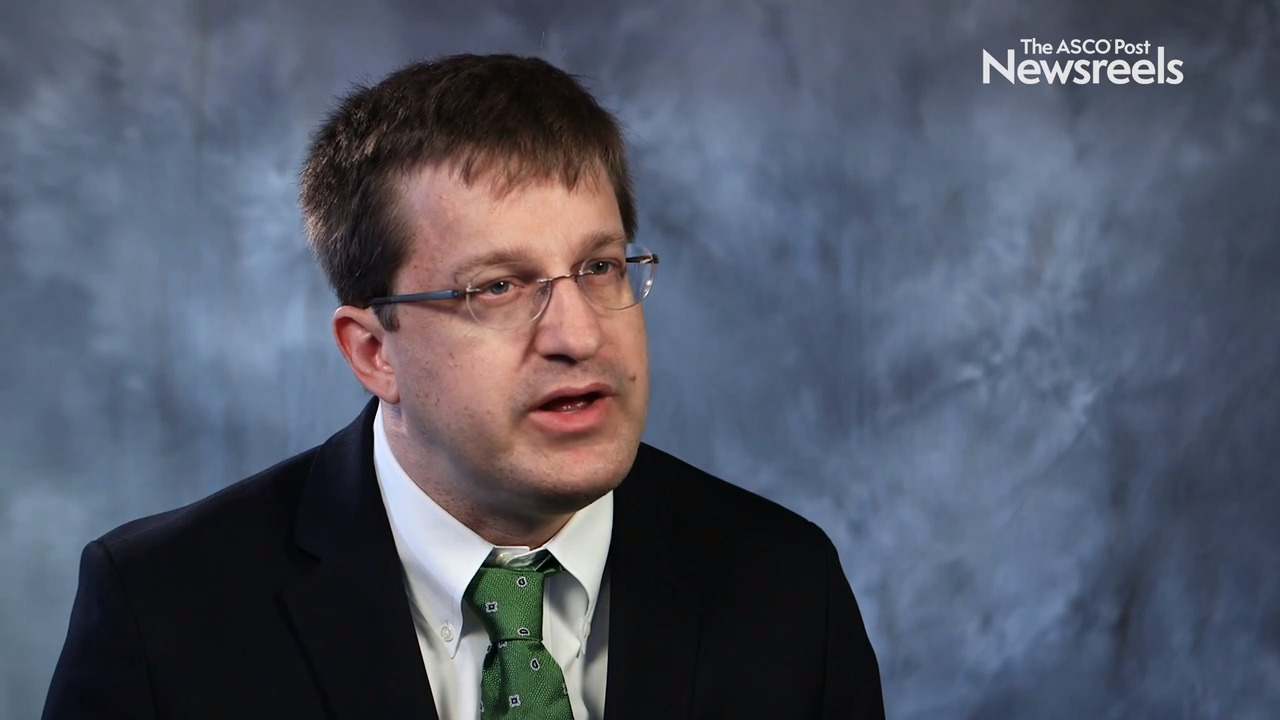Ilaria Iacobucci, PhD, on AML and MDS: Moving Beyond Gene Panel–Based Classifications
2019 ASH Annual Meeting & Exposition
Ilaria Iacobucci, PhD, of St. Jude Children’s Research Hospital, discusses her work to more accurately define mutation subtypes in acute myeloid leukemia and myelodysplastic syndromes, as well as the implications for diagnosis, prognosis, and treatment (Abstract LBA-4 ).
Tait D. Shanafelt, MD, of Stanford University, discusses extended follow-up data that show ibrutinib plus rituximab improved clinical outcomes vs the standard therapy of fludarabine/cyclophosphamide/ rituximab in younger patients with previously untreated chronic lymphocytic leukemia (Abstract 33).
Saad Z. Usmani, MD, of the Levine Cancer Institute, discusses phase III study findings suggesting that the combination of carfilzomib/dexamethasone/daratumumab represents an efficacious new regimen for patients with relapsed or refractory disease, including those refractory to lenalidomide (Abstract LBA-6).
Loretta J. Nastoupil, MD, of The University of Texas MD Anderson Cancer Center, discusses phase II study findings that showed obinutuzumab in combination with lenalidomide for patients with previously untreated, high tumor burden follicular lymphoma was associated with improved outcomes (Abstract 125).
Mikkael A. Sekeres, MD, of the Cleveland Clinic, discusses results of a phase Ib study of glasdegib in combination with azacitidine, which showed activity in patients with untreated myelodysplastic syndromes, acute myeloid leukemia, and chronic myelomonocytic leukemia who are ineligible for intensive chemotherapy (Abstract 177).
David P. Steensma, MD, of Dana-Farber Cancer Institute, discusses early study findings on H3B-8800, which decreased the need for red blood cell or platelet transfusion in 14% of patients. This splicing modulator, used in the trial to treat patients with hematologic malignancies, also showed safety, dose-dependent target engagement, and a predictable pharmacokinetic profile (Abstract 673).
